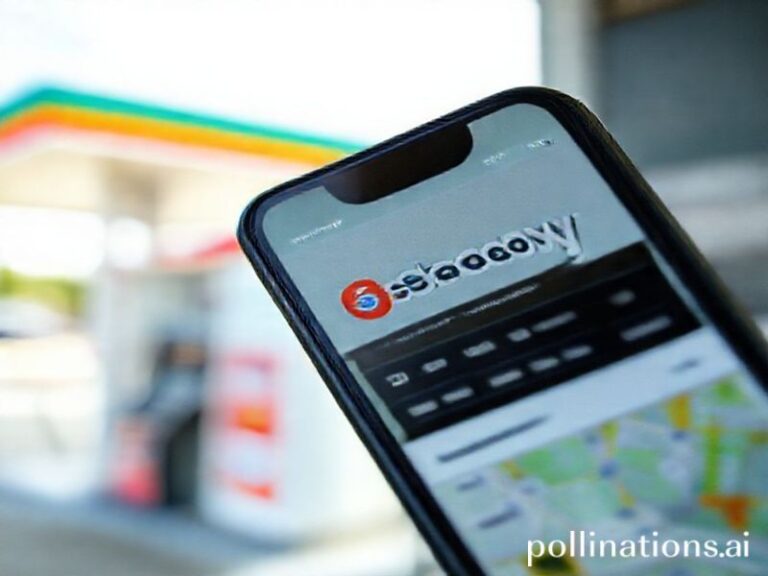Global Church Goes IPO: Vatican Ventures, Seoul Streams, and Lagos Lifeboats in the Great Faith Pivot
VATICAN CITY—In what seasoned curial insiders are calling “the ecclesiastical equivalent of a hostile takeover,” the global church woke up this week to discover that the Holy Spirit—long presumed to be a dove—has apparently pivoted into venture capital. The Synod on Synodality, a two-year circular conversation that began with earnest Zoom breakout rooms and ends (or begins, depending on which cardinal you bribe) with a final report, is now being marketed as an IPO: “Initial Pastoral Offering.” Subscription tiers range from Bronze Absolution ($9.99/month, rosary app included) to Platinum Beatification (price available upon confession).
From Manila’s traffic-choked EDSA shrine to Lagos’s floating Makoko parish—where the pews are literally canoes—the message is the same: adapt or be left singing Kyrie on hold music. In Germany, the “Synodaler Weg” has already voted to bless same-sex unions, bless pets, and, in a late-night amendment, bless the Bundesliga standings. Meanwhile, Poland’s bishops responded by threatening to withhold Sunday snacks, a move tantamount, in local terms, to nuclear deterrence. The doctrinal North-South divide now resembles a dysfunctional couple airing dirty laundry on opposite balconies of the same tenement: Rome pretends not to hear the shouting; the neighbors pretend not to watch.
Financial markets, ever pious when there’s yield, are paying attention. Bloomberg’s new “Catholic Risk Index” (ticker: VATCYN) tracks diocesan bond spreads against Mass attendance and altar-boy ratios. Last week the index dipped after a rogue parish in San Diego installed a Bitcoin mining rig behind the tabernacle, arguing that if loaves and fishes could multiply, so could hash rates. The SEC, unsure whether to classify the setup as a security or a sacrament, dispatched a team of baffled regulators who left after three hours clutching complimentary rosaries and mild theological migraines.
Asia offers its own twist of incense. In South Korea, megachurches have begun livestreaming eSports baptisms—gamers submerged in RGB-lit fonts while chat emotes rain like digital hail. Seoul’s Yoido Full Gospel Church reports that lag is the new limbo: too much latency and your sins remain unforgiven until the next patch. Over in Myanmar, clergy sheltering anti-junta protestors have rebranded confessionals as pop-up safe houses; the penitent list now includes bullet casings alongside the usual adulterers. Across the border, Thailand’s Buddhist monks watch with envy: no one ever canonized a temple after a coup.
Latin America, once the Vatican’s statistical heartland, is hemorrhaging souls faster than a leaky chalice. Brazil’s Pentecostal boom has turned the Amazon basin into a theological strip mall—one neon cross every kilometer, each promising direct flights to prosperity. The Vatican’s response? A glossy Amazonian rite featuring pan-flute Gloria and sustainably sourced communion hosts made of yuca. Early reviews complain the wafers still taste like guilt, just with a hint of cassava.
Africa, meanwhile, continues its quiet demographic conquest. By 2050, one in three Catholics will be African, prompting European seminaries to add “conversational Yoruba” next to Latin on the curriculum. Nigerian Cardinal John Onaiyekan jokes—darkly—that the only Latin phrase future priests will need is “Venmo me.” He laughs, then notes that the collection basket now accepts QR codes.
Back in Rome, Pope Francis, asked whether the Church will schism or merely rebrand, quoted Job: “I have uttered what I did not understand.” The press office translated this as “We are exploring strategic synergies.” Whatever the verdict, the faithful can expect an app update: Confession 3.0, featuring geolocated indulgences and push-notification plenary grants. Terms and conditions apply; purgatory may vary by region.
In the end, the universal Church is doing what every multinational does when growth stalls: diversify product lines, pivot to emerging markets, and pray—literally—that the brand still means something when the Wi-Fi cuts out. The gates of hell, as scripture assures us, shall not prevail. But they might go viral on TikTok first.







